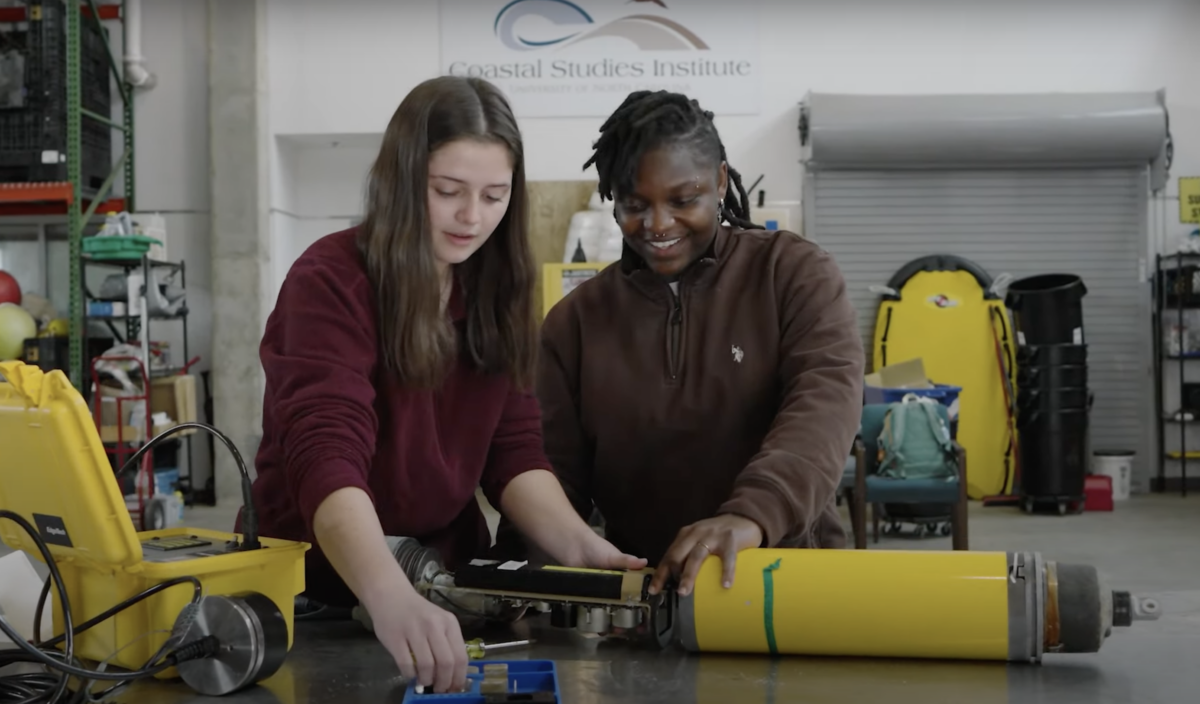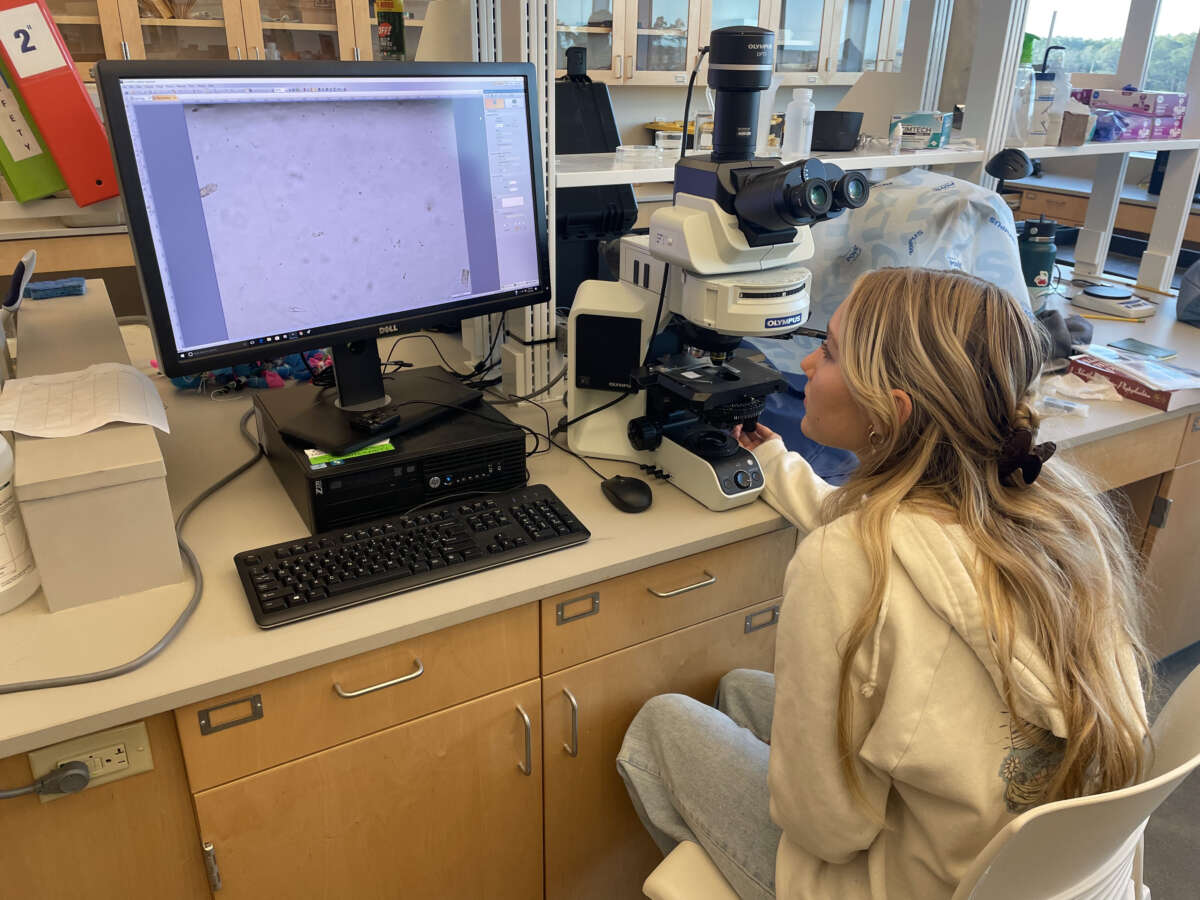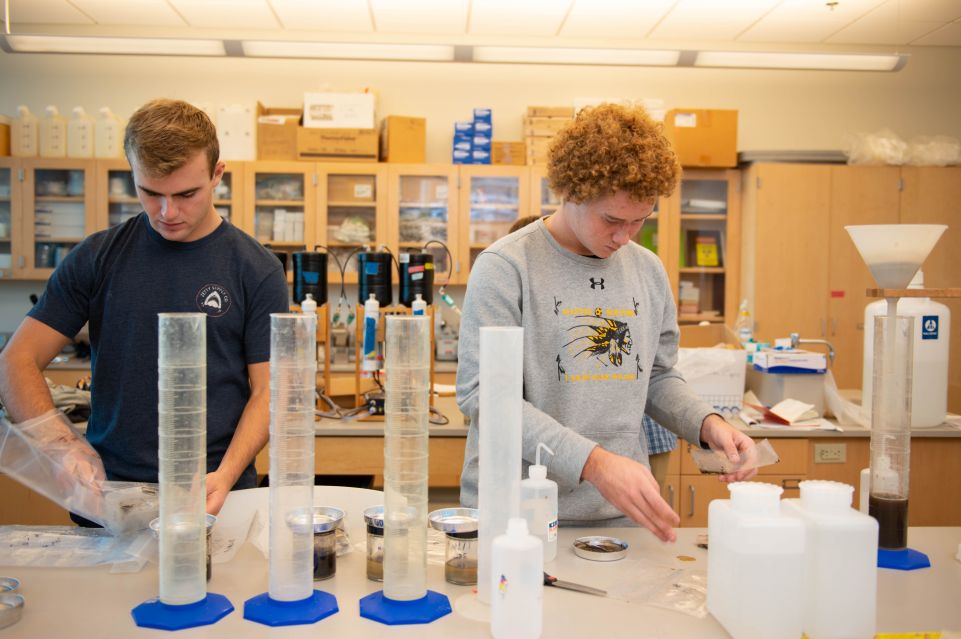“What do you want to be when you grow up?”
It is a question most begin to hear at a relatively young age. For some, that answer is easy and hardly changes with age. Yet for others, the answer is uncertain and increasingly daunting as they approach milestones like high school and college graduations. In many cases, internships can serve as a guiding factor, if not a steppingstone, for students and their future careers. An internship can provide the hands-on experience needed to be competitive in a student’s field of choice, and it can help a student narrow their list of potential careers.

With such benefits in mind, the Coastal Studies Institute is excited to revamp its internship program! While CSI has always been able to arrange internships for students at local high schools and partner universities, CSI is now able to offer an expanded selection of internships to any student who meets the general eligibility requirements.
At the helm of the new and improved program is Julie Kirn. When asked about the benefits of taking an internship at CSI, she said, “Internships are one of the best ways a student can learn what daily work for a career they are interested in really looks like. They will learn important skills and make strong connections with leaders in coastal research here at CSI. Interns bring a lot to the team, even if they may not think so. Fresh faces and ideas can make a positive impact on the research we do here, and we are always excited to welcome a new cohort each season.”
Though the internships offered change seasonally, a student in the internship program can expect to participate in marine and coastal science research or education efforts while working directly with the faculty and staff at CSI. Teams are generally small, allowing participants to develop close relationships with their mentors; and the interdisciplinary nature of work at CSI will likely expose interns to a variety of ways to study and explore coastal issues. Past internships and projects have included ocean observing, coastal processes, ecology, social sciences, science journalism, and more. Whatever the topic may be, interns and mentors coordinate to create a fun, hands-on, educational work plan that meets the needs of both the student and the CSI team.
Both high school and undergraduate students are eligible for internships at CSI. Rising 9th-12th graders are eligible for high school Internships. Those wishing to apply for an Undergraduate Internship must have a high school diploma or equivalent and at least one semester of school remaining between the completion of the internship and their graduation.




 Based at the Coastal Studies Institute (CSI), the North Carolina Renewable Ocean Energy Program (NCROEP) advances inter-disciplinary marine energy solutions across UNC System partner colleges of engineering at NC State University, UNC Charlotte, and NC A&T University. Click on the links below for more information.
Based at the Coastal Studies Institute (CSI), the North Carolina Renewable Ocean Energy Program (NCROEP) advances inter-disciplinary marine energy solutions across UNC System partner colleges of engineering at NC State University, UNC Charlotte, and NC A&T University. Click on the links below for more information. ECU's Integrated Coastal Programs (ECU ICP) is a leader in coastal and marine research, education, and engagement. ECU ICP includes the Coastal Studies Institute, ECU's Department of Coastal Studies, and ECU Diving and Water Safety.
ECU's Integrated Coastal Programs (ECU ICP) is a leader in coastal and marine research, education, and engagement. ECU ICP includes the Coastal Studies Institute, ECU's Department of Coastal Studies, and ECU Diving and Water Safety. The ECU Outer Banks campus is home to the Coastal Studies Institute.
The ECU Outer Banks campus is home to the Coastal Studies Institute.

